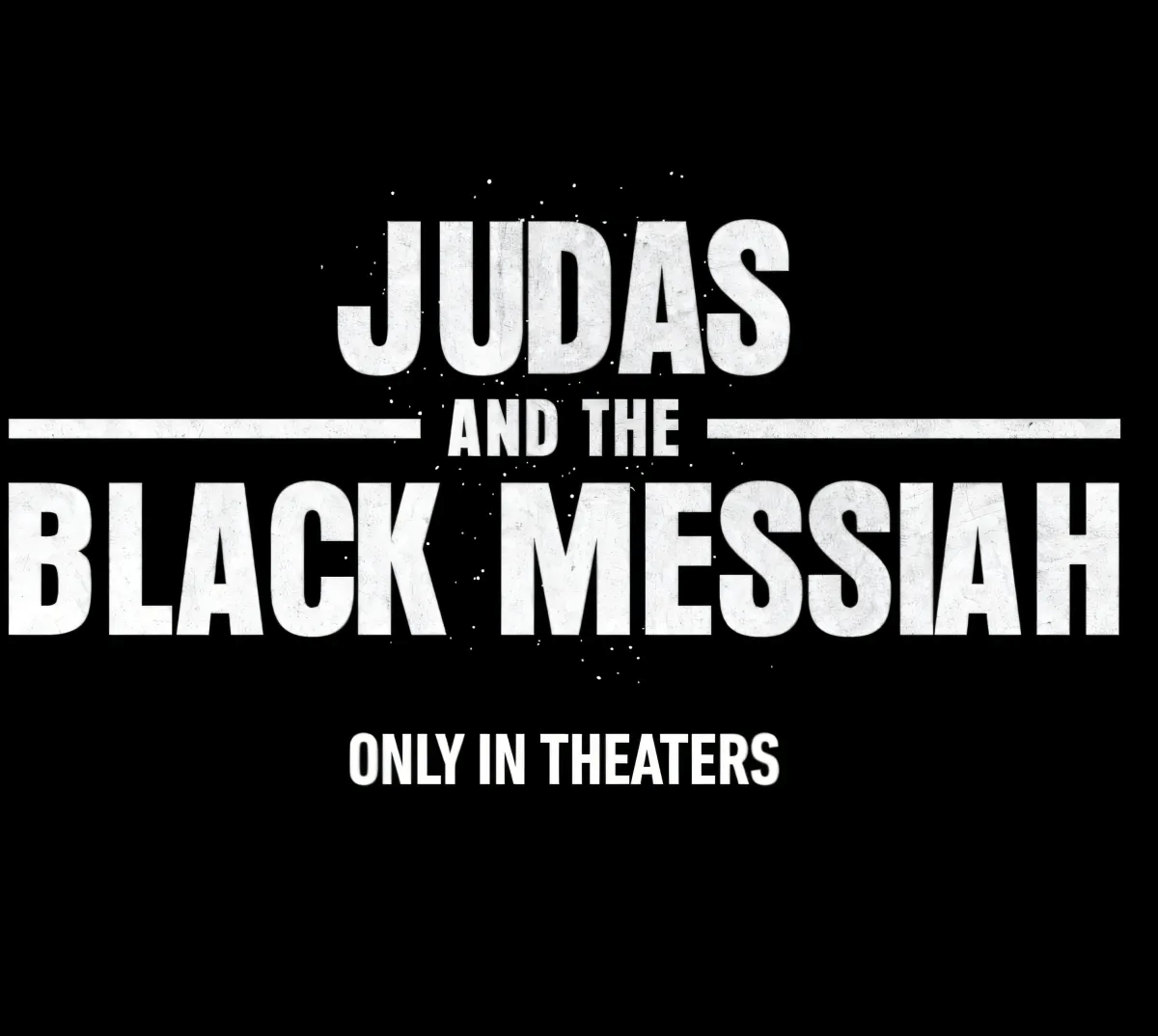Film Review: Judas And The Black Messiah
Fred Hampton was ahead of his time. He was 21 years old; the chair of the Chicago chapter of the Black Panther Party. His story is one that is known throughout many black communities and part of the narrative of the struggle for black equality in the late 1960s.
But the greater population had yet to hear his story. The rise and the fall of one of the greatest yet civil rights activists of his day. In Judas and the Black Messiah, they take this task and brilliantly bring to life Fred Hampton's message for all people; not just the black community.
The film follows Fred as he begins to build a coalition in the poorer neighborhoods of Chicago. Speaking at functions aimed at highlighting the poor education of children and the increase of police presence in and around the city.
Immediately you see he is different than other leaders at his time. He willingly went into other areas of the city to speak with other groups who on paper may have seemed more of an enemy to the Black Panther cause, than an ally. Soon it became clear what Hampton was doing.
He was gathering mutual support from other groups. From local gangs, the Latino community, even white nationalists, he was able to bring them all together under the umbrella of affordable housing, and education for their children.
You watch him educate his fellow panthers in politics and the importance of family. All the while being seen as a threat to white America. Bill O'Neal, is forced to be an FBI informant on Hampton's movements and eventually becomes the chapter's head of security. He gives intel on Hampton's plans and becomes close to the leader.
The FBI becomes convinced that Hampton is a threat and J. Edgar Hoover orders that he be neutralized in some way. Hampton is later arrested on charges of stolen ice cream. While he is in prison, Chicago police attack and torch the Black Panther chapter headquarters.
Hampton is then released pending an appeal, and the FBI informs O'Neal that if Hampton loses his appeal and goes back to prison, he will need to be dealt with before he returns to prison.
Meanwhile, Hampton comes home to learn that he is to be a father. His girlfriend is a few months from giving birth to their first child. He is stunned to learn that while the headquarters were destroyed, the entire neighborhood came out to help rebuild. The chapter never looked better, and Hampton takes the momentum and uses it to speak in the community.
His speeches are more intense and mention that if he should die, he would do so as a revolutionary. This upsets his girlfriend, knowing that there is a risk he could be taken out and not be around to know his child.
Hampton then receives word that his appeal is denied, and he will be going back to prison. He receives cash from a local gang urging him to flee the country. They try to convince him there would be no shame in leaving and this way he could still carry the fight in another country.
He declines and tells everyone to use the money to help build the medical center for the community. Unbeknownst to Hampton and the other members, O'Neal has been informed that the FBI wants Hampton dead. While at a bar, he is approached by another FBI informant with a small vile and tells him to put it in Hampton's drink.
O'Neal does as he is told, but is torn over what his role is in the plot to kill Hampton. In the earlier hours of the next morning, a few members wake to sounds outside the headquarters. They rush to wake up the others when the cops begin to shoot into the building. One member a 19-year-old boy is killed and others are wounded.
The cops then tell those unhurt to walk out with their hands up and to surrender. Hampton has been shot, but because he was drugged the night before he never actually wakes. His body is shielded by his girlfriend who is now 37 weeks pregnant.
She is told to leave his side and leaves him lying in their room. With her hands raised, she hears the cops say that Hampton may actually live. Another cop shoots Hampton point-blank and exclaims he wouldn't be now.
The film ends with archival footage of Hampton's funeral, clips from his speeches, and photos of his girlfriend and son. She would give birth to Fred Hampton Jr. just 4 weeks after his death.
The performances of Daniel Kaluulya as Hampton and LaKeith Stanfield as O'Neal are two of the strongest I have seen in a very long time. Not since watching Denzel Washington play Malcolm X has more emotion been portrayed on film.
But the film also carries with it certain anger that is transferred to the viewer. You witness the power of what one individual can accomplish. How he was able to put aside differences with other people and groups and come together for a cause greater than all of them combined. And for that, he was seen as a threat.
The film leaves you feeling robbed. Robbed of what could have been. What could have been achieved, had the injustice of racism not have reared its head? The film highlights how the very fabric of the American judicial system was rigged against those who fought for equality.
The issues of today are echoes of the past shown in this film. I came away from this wishing there was a Fred Hampton with us today. The current climate of America is not so different from his time, and in a lot of ways, not much has changed at all.
I hope that those involved in the making of this film are rewarded for the amazing work they did in bringing Fred Hampton back if only in film.
Opinions and Perspectives
Hampton's ability to connect with people from all walks of life was incredible
The scenes of community organizing really showed what the movement was about
The way they showed the impact on the community after his death was powerful
The breakfast program scenes really challenged my preconceptions about the Panthers
You could really feel the weight of responsibility on Hampton's shoulders throughout the film
The scene where Hampton first meets his future girlfriend perfectly captured young love in serious times
I keep thinking about how young everyone involved was. Just kids fighting for their rights
The contrast between Hampton's public persona and private moments was really well portrayed
I found myself getting emotional during Hampton's speeches. Such powerful writing and delivery
The way they showed the growing paranoia in the organization was really well done
That scene where he turns down the escape money really shows his character
Hampton's ability to speak to different audiences and adapt his message was remarkable
I was impressed by how they handled O'Neal's character. They showed his complexity without excusing his actions
The preparation for the breakfast program scenes really showed their dedication to the community
You can really see why the FBI saw Hampton as such a threat. He was uniting people across racial lines
I've studied this period but the film really brought it to life in a way books couldn't
The scene where Hampton returns from prison to see the rebuilt headquarters was so powerful
I appreciate how they showed both the Panthers' community work and their armed resistance
That bar scene where O'Neal spikes Hampton's drink was so tense. Great directing there
The way they showed the FBI's manipulation was terrifying. Makes you wonder what's happening today
I was surprised by how much humor they included. Those lighter moments made the heavy parts hit harder
It's fascinating how he managed to unite such different groups under common causes like housing and education
The scene where Hampton discusses politics with the younger Panthers showed his commitment to education
I keep thinking about how his son never got to meet him. That's the real tragedy
Those archive clips at the end really drove home that this wasn't just a movie. This really happened
The film really captures how Hampton's message transcended race. It was about class struggle too
I found it interesting how they showed the Panthers' breakfast program and other community services
Watching this made me realize how young many civil rights leaders were. They were just kids really
The way Hampton brought together rival gangs was incredible. That took real leadership
I honestly never learned about any of this in school. Makes you wonder what other important history we've missed
That final raid scene was devastating to watch. Even knowing it was coming, it hit hard
I appreciated how the film showed Hampton's strategic thinking. He wasn't just a fiery speaker
The ice cream theft charge was so obviously fabricated. Really shows how they would use any excuse
Am I the only one who felt some sympathy for O'Neal? He was basically forced into that position
The relationship between Hampton and his girlfriend added such an important human element to the story
I found myself getting angry watching how the system worked against them at every turn
The scene where the neighborhood helped rebuild the headquarters showed the real community support they had
The way they portrayed the contrast between Hampton's public speeches and private moments was really well done
I've read Hampton's actual speeches and Kaluuya nailed the cadence and power perfectly
The cinematography during Hampton's speeches was fantastic. Really captured the energy of those moments
Does anyone know what happened to O'Neal after all this? The film left me wondering about his fate
The medical center part really got to me. Even facing prison, Hampton put the community first with that money
I respectfully disagree about them sanitizing it. I think they showed a balanced view of both the community work and the militancy
The FBI's role in this is absolutely chilling. The lengths they went to silence someone trying to unite people for positive change
Actually they were much more militant than the film showed. I feel like they sanitized some aspects of the movement
What struck me most was Hampton's focus on education and community services. The Panthers weren't just about militant resistance
The scene with his pregnant girlfriend shielding his body broke my heart. Such a powerful moment
I agree completely. The parallels to current events are unmistakable. We're still fighting many of the same battles
Anyone else notice how relevant the themes still are today? The police violence and surveillance feels eerily familiar
LaKeith Stanfield portrayed O'Neal's internal conflict so well. You could feel his torment over betraying Hampton
The scene where Hampton builds bridges with the white nationalist group really surprised me. Shows how he could find common ground with anyone
I'm still processing how young Hampton was when he accomplished all this. Only 21 years old. Makes me wonder what else he could have achieved if given the chance
The way Daniel Kaluuya captured Hampton's charisma and conviction was absolutely incredible. I felt like I was watching the real Fred Hampton
This film really opened my eyes to Fred Hampton's remarkable ability to unite diverse groups. I had no idea he worked with such a broad coalition

